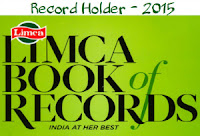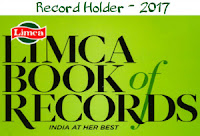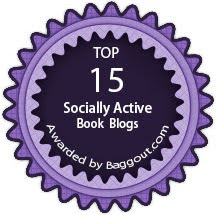*** Special Feature - May 2016 ***
Quick Recap
1st May - Introducing Author Stephen Oram
15th May - Author in Residence at Virtual Futures
I was interested to see you write
novels and flash fiction, can you say a bit about why you write flash fiction?
When I was writing my first novel I was aware
that I needed to find a way to let readers know I existed. The conventional
wisdom of the time seemed to be that you should write a blog that potential
fans would be interested in. For some this was a personal blog about their
writing life and for others it was factual and connected to their book. I thought
about it long and hard, aware that whatever I chose I would have to stick to
for a long time. Eventually, I decided that what was most likely to connect
with potential fans was actual fiction. That way they could read some of my
work without having to commit to a full novel, so I started to write and blog a
flash fiction series called Living in
Your Dystopia.
And what made you continue after
publishing your first novel?
I met a very experienced writer for coffee and
she told me how much she liked my flash fiction and that I should think about
entering competitions. Later, after my second novel Fluence was published, I was invited to join the Clockhouse London
Writers who meet once a month and focus almost entirely on writing flash fiction,
poetry and short stories.
I find the short stuff a real challenge and
great fun. To capture an idea, usually a piece of near-future technology, and work
on it intensely for a couple of weeks is a great feeling. It also helps to do
something constructive with all the fresh ideas that seem to form every day
inside my head.
There’s quite a lot of flash
fiction on your website that’s free for your readers. Is that everything you’ve
written?
No, I’ve had others accepted in anthologies –
Little Modern Miracles will appear in
the Wordland: 7 anthology from theEXAGGERATEDpress and Disjointed in the Kind of a Hurricane Press anthology “Shattered.”
I’m not sure when they’ll be out, but if you sign up to my Mailing List I’ll let
you know as soon as they’re available.
What’s the shortest piece you’ve
written?
It’s not quite the shortest piece but it’s
certainly the most popular of the really short stuff. It’s the one I mentioned
in a previous interview that was used by a school’s philosophy class.
The Driverless Car’s Dilemma
‘Mummy!’ screamed her five-year old daughter.
She looked up from her iPad. ‘What now?’
‘Look!’
Through the windscreen she saw a group of
children crossing the road slowly, sliding around on the ice.
The driverless car wasn’t braking.
She’d forgotten to ask the hire company if this
model was programmed to prioritise pedestrians or passengers. It would make a
choice – her daughter or the kids playing in the road – but she didn’t know
which one.
She could override it by taking control of the
steering. But, her driving ability was far inferior to the car’s algorithm. She
glanced at the rock face on one side and the cliff edge on the other.
He daughter screamed again, ‘Mummy!’
She grabbed the wheel.
Do you think there’s a future in
flash fiction or is just a passing phase?
Research shows that more and more people are
reading on their smart phones and by implication on short journeys which should
mean there’s an increasing desire for flash fiction. I think it’s here to stay.
Flash Fiction under various guises has been
around for as long as story-telling, think Aesop’s Fables, Panchatantra and
Jataka (thanks Wikipedia). I’m always amazed and inspired by how much a short
song lyric can convey and although this crosses over with poetry and has the
benefit of being sung, it’s proof of how much you can say with a few
well-chosen words.
Finally, what can we expect from
you in the future? Flash Fiction? Short Stories? Novels?
Yes, yes and yes. I’m working on a third
novel at the moment and I’m really excited. I can’t say much about it except
that it’s about a multi-generation family living in a utopian society that has
ways of keeping any backwards drift in check. Although don’t forget, one
person’s utopia is often another’s dystopia. I’m also planning a couple of
anthologies of the short stuff, so look out for those.
And finally, a big thank-you from me for the
opportunity to feature on your lovely blog for a whole month. I hope you enjoyed
it as much as I did.
It’s the week before the annual Pay Day when strata positions are decided by the controlling corporations. The social media feed is frenetic with people trying to boost their influence rating while those above the strata and those who’ve opted out pursue their own manipulative goals.
Amber is ambitious. Martin is burnt out by years of struggling. She cheats to get what she wants while he barely clings on to what he has.
Set in a speculative near-future London, Fluence is a satirical story of aspiration and desperation and of power seen and unseen. It’s a story of control and consequence. It’s the story of the extremes to which Amber and Martin are prepared to go in these last ten thousand minutes before Pay Day.
Book Links:
Goodreads I Amazon
Hippie-punk, religious-squatter, bureaucrat-anarchist; I thrive on contradictions. The tension they create fuels my slightly skewed fictional worlds and the complex characters that inhabit them. It’s hard to describe the sheer delight I get from taking reality, nudging it out of kilter and seeing what happens.
I was a teenager in a small market town in the UK when punk hit the scene and its ethos and energy rushed through me and my generation. It felt as if we could stick two fingers up to the establishment and do whatever we wanted, however we wanted to do it. I’m sure that’s a familiar feeling for every generation of teenagers, but there’s no denying that punk provoked a reaction. It was also the era of free festivals and the peace convoy; to a teenager at a time when nuclear war threatened to end the world at any moment the free festivals like Stonehenge seemed truly post-apocalyptic. I loved them. The mix of hippies, hells angels and punks all co-existing (fairly) peacefully without the police was an incredibly formative experience. I’ve been to festivals every year since and still find them a great way to re-calibrate normal.
Being a squatter and being in a cult were both out there experiences but not as dissimilar as they might seem at first glance; they both had a strong ideological desire for non-conformity and strong, albeit different, moral codes. That’s the sort of realisation that makes me want to wobble the world to see what falls out.
I’ve had some fun on the journey from that punk inspired teenager to this anarchy inspired bureaucrat and more often than not I’ve had a foot in more than one camp at a time: as an unwelcome hippie at punk gigs; a religious cult member in the hedonistic squatter scene; or a would-be anarchist working as a bureaucrat. Even where I live in Fitzrovia we see ourselves as a village in the heart of London, as an enclave of difference standing out against the corporate onslaught of blandness (but close enough in case we need it).
That’s only a small insight into the inspirations and experiences that helped form me, Stephen Oram the author. And, if I’m asked why I write I have more than one answer; it’s a mixture of wanting to create something entertaining, thinking I’ve got something to say and needing something to keep me out of mischief. One thing is for sure though, I’d love to set off some small firecrackers of thought to light the world slightly differently inside your head!
Contact
Website I Facebook I Twitter I Goodreads
Giveaway
2 digital Copies of Fluence by Stephen Oram





























No comments:
Post a Comment